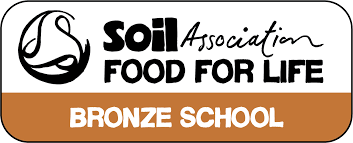British Values Statement
The Department for Education states that there is a need:
“To create and enforce a clear and rigorous expectation on all schools to promote the fundamental British values of democracy, the rule of law, individual liberty and mutual respect and tolerance of those with different faiths and beliefs”.
The Department for Education defines British Values as follows:
- Respect for democracy and support or participation in the democratic process
- Respect for the basis on which the law is made and applies in England
- Support for equality of opportunity for all
- Support and respect for the liberties of all within the law
- Respect for and tolerance of different faiths and religious and other beliefs
We ensure that the fundamental British Values are introduced, discussed and lived out through the ethos and work of the school.
All curriculum areas provide a vehicle for furthering understanding of these concepts and, in particular, RE, PSHE and Assemblies provide opportunities to deepen and develop understanding.
We encourage our children to be creative, unique, open-minded and independent individuals, respectful of themselves and of others in our school, our local community and the wider world.
We aim to nurture our children on their journey through life so they can grow into safe, caring, democratic, responsible and tolerant adults who make a positive difference to British Society and to the world.
To see how we promote British Values through our Creative Curriculum, please click on the link below: ![]() British Values Coverage.pdf
British Values Coverage.pdf
What is SMSC?
Pupils’ spiritual development is shown by their:
- ability to be reflective about their own beliefs, religious or otherwise, that inform their perspective on life and their interest in and respect for different people’s faiths, feelings and values
- sense of enjoyment and fascination in learning about themselves, others and the world around them
- use of imagination and creativity in their learning willingness to reflect on their experiences.
Pupils’ moral development is shown by their:
- ability to recognise the difference between right and wrong and to readily apply this understanding in their own lives, recognise legal boundaries and, in so doing, respect the civil and criminal law of England
- understanding of the consequences of their behaviour and actions
- interest in investigating and offering reasoned views about moral and ethical issues and ability to understand and appreciate the viewpoints of others on these issues.
Pupils’ social development is shown by their:
- use of a range of social skills in different contexts, for example working and socialising with other pupils, including those from different religious, ethnic and socio-economic backgrounds
- willingness to participate in a variety of communities and social settings, including by volunteering, cooperating well with others and being able to resolve conflicts effectively
- acceptance and engagement with the fundamental British Values of democracy, the rule of law, individual liberty and mutual respect and tolerance of those with different faiths and beliefs; they develop and demonstrate skills and attitudes that will allow them to participate fully in and contribute positively to life in modern Britain.
Pupils’ cultural development is shown by their:
- understanding and appreciation of the wide range of cultural influences that have shaped their own heritage and those of others
- understanding and appreciation of the range of different cultures within school and further afield as an essential element of their preparation for life in modern Britain
- knowledge of Britain’s democratic parliamentary system and its central role in shaping our history and values, and in continuing to develop Britain
- willingness to participate in and respond positively to artistic, musical, sporting and cultural opportunities
- interest in exploring, improving understanding of and showing respect for different faiths and cultural diversity and the extent to which they understand, accept, respect and celebrate diversity, as shown by their tolerance and attitudes towards different religious, ethnic and socio-economic groups in the local, national and global communities.
Click on the link below to see how we promote SMSC across the school:
![]() SMSC at Orchard 2018-19.pdf
SMSC at Orchard 2018-19.pdf






